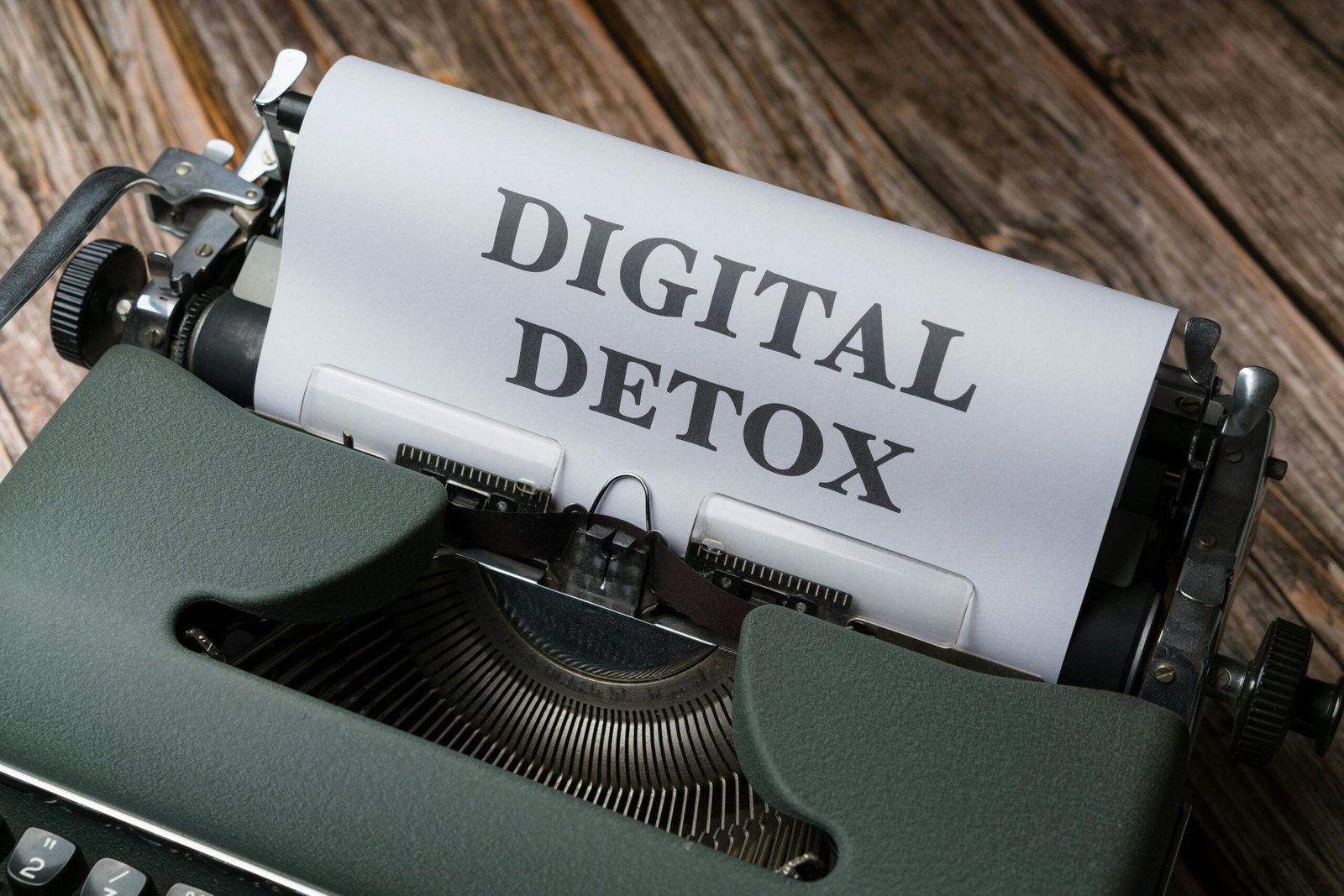
Why Digital Detox Is More Relevant Than Ever
In an age where notifications control our attention and screen time dominates our days, the need for a digital detox has never been more critical. Our devices are essential for communication, work, and entertainment, but their overuse can lead to stress, anxiety, and even physical health issues.
This blog explores the concept of digital detox, its benefits for mental and physical well-being, and actionable steps to reduce screen dependency. Let’s unplug and rediscover life beyond the screens.
Understanding Digital Detox
What Is Digital Detox?
A digital detox involves taking a deliberate break from electronic devices such as smartphones, computers, and social media to focus on real-world activities and relationships. It’s not about abandoning technology but about using it mindfully.
Why Is It Necessary?
On average, adults spend over 7 hours a day on screens, contributing to:
- Increased stress and anxiety.
- Sleep disturbances due to blue light exposure.
- Reduced productivity and attention span.
The Science Behind Digital Detox
How Screens Affect Your Brain
Excessive screen time impacts your brain’s reward system, causing dopamine spikes similar to those from addictive substances. This constant stimulation can lead to:
- Impaired focus and memory.
- Heightened stress levels.
- Difficulty in forming deep human connections.
The Connection Between Screen Time and Mental Health
Studies have linked excessive social media use with increased rates of depression and loneliness. The curated, “perfect” lives displayed online can trigger feelings of inadequacy and FOMO (fear of missing out).
Benefits of a Digital Detox
-
Improved Mental Clarity
Taking a break from screens can help declutter your mind, improving focus and decision-making abilities.
-
Better Sleep Quality
Reducing blue light exposure before bedtime promotes melatonin production, leading to deeper, more restorative sleep.
-
Strengthened Relationships
Unplugging allows for more meaningful interactions with loved ones, fostering stronger connections.
-
Boosted Productivity
Without constant notifications, you can channel your energy into tasks that truly matter, enhancing efficiency and creativity.
How to Start Your Digital Detox Journey
-
Set Clear Goals
Decide why you’re detoxing. Are you seeking better focus, less stress, or more time for personal growth? Having a goal will keep you motivated.
-
Create Tech-Free Zones
Designate areas in your home, like the dining room or bedroom, where devices are off-limits. This encourages face-to-face interactions and better sleep hygiene.
-
Use Technology Mindfully
- Schedule Screen Time: Allocate specific times for checking emails or social media.
- Turn Off Notifications: Silence non-essential alerts to minimize distractions.
- Unsubscribe and Declutter: Reduce digital clutter by unsubscribing from unnecessary emails and apps.
-
Replace Digital Habits with Healthy Alternatives
- Instead of scrolling through social media, read a book or journal.
- Swap binge-watching TV for a nature walk or workout session.
Trending Digital Detox Practices for 2024
-
Device-Free Mornings
Start your day with mindfulness practices instead of reaching for your phone. Meditate, stretch, or enjoy a quiet cup of tea to set a positive tone for the day.
-
The 24-Hour Digital Sabbath
Take one day each week to unplug entirely from screens. Use this time for hobbies, outdoor adventures, or bonding with family.
-
Tech-Free Vacations
Plan trips where you intentionally avoid using devices. Choose destinations with limited connectivity to fully immerse yourself in the experience.
-
Digital Minimalism
Adopt a “less is more” mindset with technology. Focus on using fewer apps and platforms that align with your values and goals.
-
Mindful Media Consumption
Be selective about the content you consume. Follow accounts that inspire and educate rather than those that lead to stress or comparison.
Challenges in Digital Detox and How to Overcome Them
-
Fear of Missing Out (FOMO)
Overcome FOMO by reminding yourself of the meaningful experiences you gain offline.
-
Work Dependencies
If your job requires constant connectivity, schedule breaks during lunch or after work hours to step away from screens.
-
Social Pressure
Explain your digital detox to friends and family. Encourage them to join you in creating a healthier relationship with technology.
Tips to Sustain Your Digital Detox Efforts
- Celebrate Progress: Acknowledge milestones, like spending an entire day without social media.
- Find Accountability Partners: Encourage friends or family members to detox with you for mutual support.
- Review and Reflect: Regularly evaluate how your reduced screen time has improved your life.
Conclusion: Reclaim Your Life from Digital Overload
A digital detox is not about rejecting technology but about creating boundaries to protect your well-being. By reclaiming your time and attention, you open the door to improved mental health, deeper relationships, and a more fulfilling life.
Start your detox journey today, and experience the profound benefits of unplugging in a hyperconnected world.
FAQs
- How often should I do a digital detox?
This depends on your lifestyle. Weekly mini-detoxes or monthly extended breaks are great starting points. - Can I detox if I need to use screens for work?
Yes! Focus on minimizing non-work screen time and take regular breaks during work hours. - Is digital detox suitable for kids?
Absolutely. Encourage family-wide detox activities, like game nights or outdoor adventures, to instill healthy tech habits in children.
